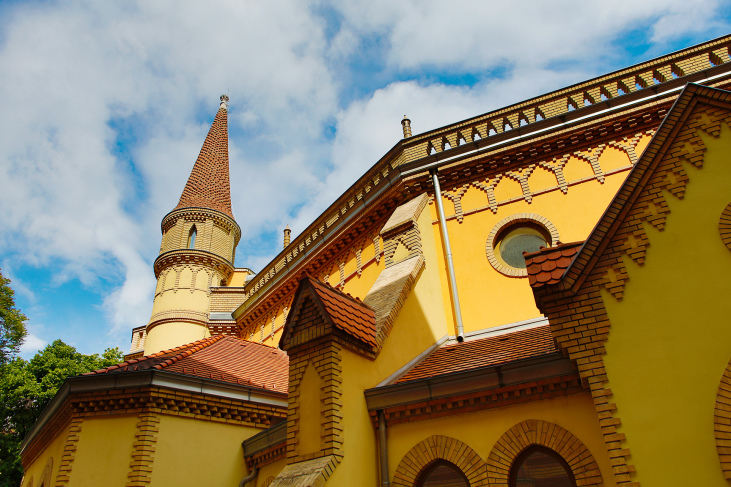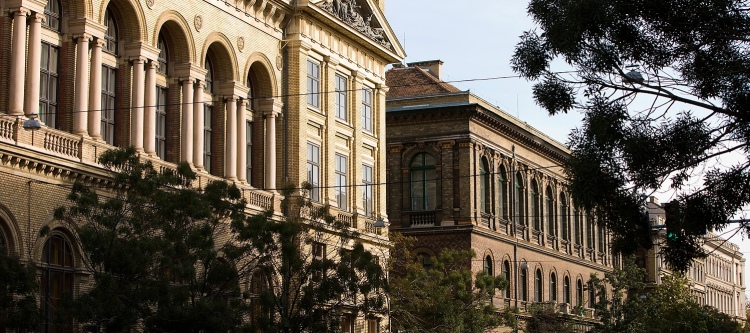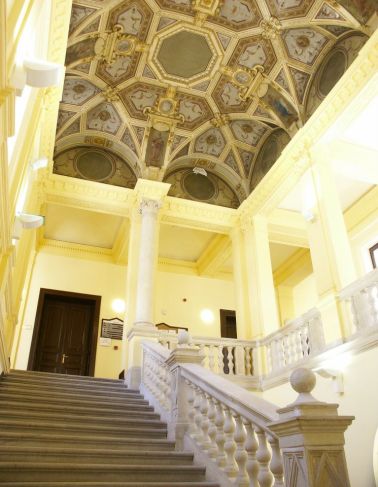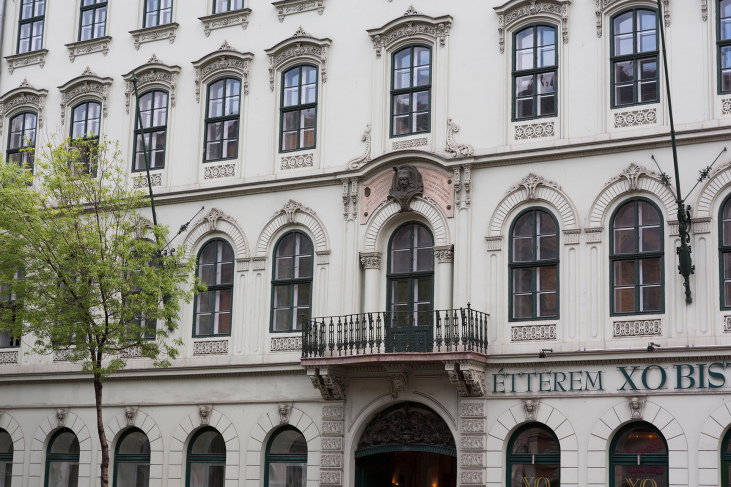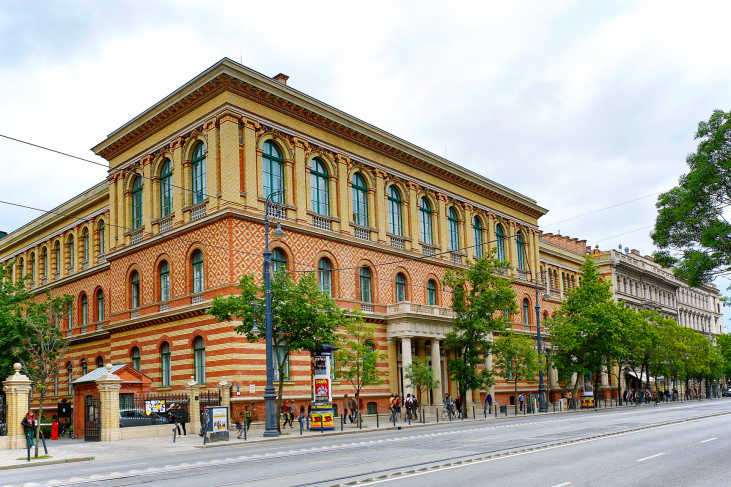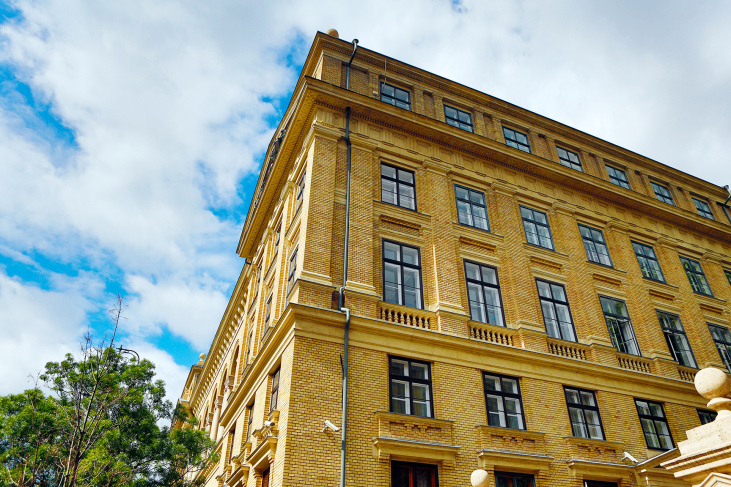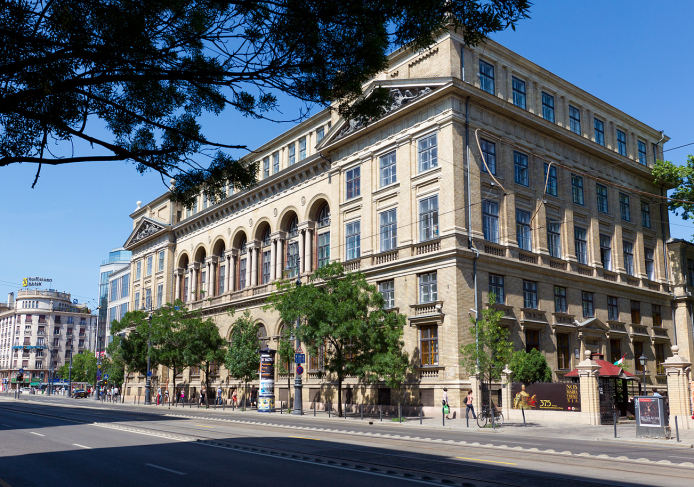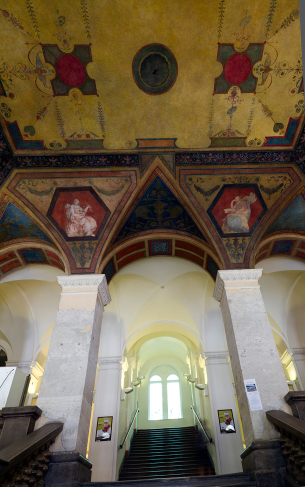Central European Studies MA
Central European Studies MA
Central European Studies Expert
Degree program
Master
FNYF/607-3/2021
Institute of Historical Studies
English
4 semesters (2 years)
120
2
30
Central European Studies is an interdisciplinary master's program at Eötvös Loránd University, involving five institutes at the Faculty of Humanities.
The aim of the program is to train broad-based area experts by providing a comprehensive and wide-ranging knowledge of the Central European region. Some courses deal with the region’s history, cultures, languages, literary traditions and societies; other subjects focus on past and present political systems, geopolitical factors, economies, international relations, minorities and minority politics, cities, and urban architecture. There is an emphasis on the common heritage of Central Europe, but the curriculum also provides an opportunity for students to immerse themselves in the histories and current characteristics of individual countries.
A major attraction of Central European Studies is the opportunity to learn regional languages (e. g. Polish, Czech, Slovak, Serbian, Croatian, Slovene, Romanian or Ukrainian). The program builds upon the uniquely rich variety of languages taught at ELTE and the expertise of philology departments in language instruction. English academic writing is also part of the curriculum.
This program is recommended to applicants who wish to obtain a broad and versatile knowledge of the Central European region and acquire complex language skills; to applicants who are ready to put their cultural skills and factual knowledge into practice.
This program enables students to understand Central Europe as a cultural region, and identify those cultural, artistic, linguistic, historical, political, economic and societal forces which shaped this region throughout its history. It enables students to build further knowledge on this sound footage during their later careers, and apply their knowledge as well as skills in practical fields. After completing the program, students will be able to effectively cooperate with various cultural communities related to Central Europe and develop an openness toward the multinational and multilingual culture of the region.
The program enhances students’ analytical and discussions skills as well as their writing skills. It also develops students’ abstract thinking and encourage them to approach problems with diverse methodologies. The program inspires students to further develop their general knowledge as well as their language skills during their later studies, build strong professional identities, and commit themselves to constant self-education during their careers.
Specializations:
International relations - diplomacy
Professors teaching in the program are thoroughly embedded internationally in both university and research networks. All professors have studied and/or guest-taught in Western Europe, North America, and in various institutions of higher education around Central and Eastern Europe. Professors’ lists of publications include several monographs and edited volumes in English, French and other languages; they have been publishing in highly ranked, peer-reviewed international as well as Hungarian journals. They are involved in numerous research project as well. To cite only a few instances:
Erika Szívós, Program Director of Central European Studies and Head of the Department of Economic and Social History, is member of the International Commission for the History of Towns (ICHT) and European Association of Urban Historians (EAUH); she contributes to the ERC research project Continuity / Rupture: Art and Architecture in Central Europe 1918-1939 (CRAACE) as advisory board member; she is founder of an exchange scheme between McGill University (Montreal) and ELTE. Gábor Farkas Kiss, besides being Chair of the Department of Old Hungarian Literature, is Head of the internationally well-connected Humanism in East Central Europe research group. Andor Mészáros, bohemist, historian and an erudite specialist in Central European cultures and post-1990 political geography, is responsible for CEEPUS, A Central European academic cooperation network. Gábor Sonkoly is Head of the Doctoral School of History at ELTE’s Faculty of Humanities, member of the International Board of EAUH, leader of the Problem-Solving Systems Research Group and head of what was launched as ELTE’s first Erasmus Mundus consortium, involving the Paris-based École des hautes études en sciences sociales (EHESS, the Prague-based Charles University, the University of Catania and ELTE. Balázs Ablonczy, formerly the head of the Hungarian Institute in Paris, is a widely acclaimed historian specializing in the post-World-War-I peace treaties and their consequences; he is head of a major research project Trianon 100 based at the Hungarian Academy of Sciences.
In recent years, all these projects have yielded important volumes and academic relations regionwide and beyond. On major strength of the program is thus its professors’ academic distinction and their networks of international relations from which students can also benefit. Another major strength of Central European Studies is the uniquely rich variety of languages taught at ELTE and the university’s impressive number of diverse philology departments specializing in regional languages, cultures and literatures. A further plus is certain professors’ practical work experience in international relations and cultural diplomacy.
Cultural diplomacy, foreign affairs, public administration; regional NGOs and foundations; doctoral programs and academia international multinational companies or institutions where Cemtral-Europe-specific language skills, regional local knowledge are an advantage or an explicit expectation.
Cultural institutes of other countries operating in Central European states; Central European foundations, domestic and foreign research institutes, universities, non-profit organizations, companies and organizations operating in various fields of cultural tourism or economy; private companies and corporations (including trade and commerce) operating in Central Europe or similar companies elsewhere with a Central European clientele.
program manager or coordinator at a cultural institute or foundation; analyst or research fellow at a research institute; journalist; grantee of a doctoral program; area manager/specialist at a trading company
2,500 EUR
2,500 EUR
The application fee is discounted for Early Bird applicants: EUR 100 (non-refundable) between 01/11/2024 - 30/11/2024 and between 01/02/2025 - 31/03/2025; The regular application fee is: EUR 150 (non-refundable) between 01/04/2025-31/05/2025
The application fee is discounted for Early Bird applicants: EUR 100 (non-refundable) between 01/11/2024 - 30/11/2024 and between 01/02/2025 - 31/03/2025; The regular application fee is: EUR 150 (non-refundable) between 01/04/2025-31/05/2025
-
-
100 EUR (Entrance exam fee)
100 EUR (Entrance exam fee)
2,500 EUR
The application fee is discounted for Early Bird applicants: EUR 100 (non-refundable) between 01/11/2024 - 30/11/2024 and between 01/02/2025 - 31/03/2025; The regular application fee is: EUR 150 (non-refundable) between 01/04/2025-31/05/2025
-
100 EUR (Entrance exam fee)
Yes
01, Sep, 2025
31, May, 2025
No
Entry requirements:
Applicants must hold a bachelor (BA) degree in the following fields of humanities: History, Hungarian, Ethnography, Slavonic Studies, Roma Studies, Liberal Arts, Germanic Studies (Specialized in German Studies and German as Ethnic Minority Studies), Romance Philology and Cultures (Specialized in French or Italian Studies); and in the following fields of social sciences: Sociology and Social Sciences Studies.
Applicants holding bachelor’s degrees in other fields are also considered for admission if they have completed a sufficient number of relevant courses (50 credits, 30 for admission) in the fields of history of philosophy, aesthetics, economics- and social studies, international relations studies, political science, Roma studies, communication studies, modern and contemporary history, theory of literature, linguistics, Germanic studies and Slavonic Studies.
The educational and outcome requirements are defined by the Ministry of Human Capacities, Regulation No. 18/2016. (VIII. 5.). Details of the application and admission process are defined by the Organisational and Operational Regulations of ELTE.
Language requirements:
The language of instruction is English. Non-native speakers of English must demonstrate a very good level of English-language skills.
In addition to a very good level of English-language skills, applicants must also hold an official language exam (issued by a language exam centre) demonstrating at least a B2 level of competence of English or German (according to the Common European Framework of Reference for Languages) or its equivalent in the form of a ‘complex’ B2 level exam (issued in Hungary), school-graduation certificate or completed degree attesting to at least a B2 level of language competence.
- TOEFL PBT (Paper-based test): 516-554
- TOEFL IBT (Internet-based test): 66-82
- TOEFL IBT Home Edition: 66-82
- IELTS (International English Language Testing System): 5.5
- CEFR (Common European Framework of Reference): B2
|
Document |
Comment |
|
Secondary school certificate (graduation certificate) |
Notarized copy only on request. |
|
Bachelor-level degree |
An official copy of your completed Bachelor degree |
|
Transcript of records |
|
|
CV |
Curriculum Vitae including applicant’s previous achievements (scholarships, publications, conference presentations, cultural projects, business experience, voluntary work, etc.) |
|
Motivation letter |
A maximum of 500 words indicating why the applicant wishes to start the program, and what her special field of interest is. |
|
Research work plan |
Optional document A preliminary research proposal for a proposed thesis project with a study and research plan (detailed outline of your field of interest), a preliminary bibliography (indicating what the applicant has read already). |
|
Copy of the main pages of the passport |
Scanned, in colour all personal details and expiry date must be shown. Passport must be valid. |
|
Copy of application fee transfer |
|
|
Copy of the Entrance exam fee transfer |
|
|
Language certificate |
Official test result or certificate must be provided; |
Optional documents for admissions
- Letter of Reference
Also called “Letter of recommendation”: From a former instructor and/or employer
Application deadlines:
The deadline for application means the deadline of submission of the full and complete application package in the online system.
Period 1 (with Early Bird discount): 01/11-30/11/2024 23:59 (CET)
Period 2 (with Early Bird discount): 01/02-31/03/2025 23:59 (CET)
Period 3: 01/04-31/05/2025 23:59 (CET)
The application procedure includes 3 periods in order to give the applicants the freedom to submit their application when it’s most suitable for them. The applicants of each period have the same chance to get admittance for the programme. However, please note, that the Faculty of Humanities ELTE reserves the right to cancel the entrance periods in case the number of the admitted applicants reaches the limit during the previous entrance periods.
Procedure of the application:
The application starts in the online application system. Students need to register in the system, fill in the online application form, upload the required documents and follow the instructions during the application process.
Applications will only be processed if the application fee (100 EUR or 150 EUR depending on application period; non-refundable) has been transferred to the Faculty’s bank account.
For further information and details about transferring the application fee please visit our Faculty’s website: btk.elte.hu/prospective-students-financial-issues
BANK ACCOUNT DETAILS OF OUR UNIVERSITY
IBAN Bank Account: HU 03 1003 2000 0142 6201 0000 0000
BIC/SWIFT code: HUSTHUHB
Name of the University: EÖTVÖS LORÁND UNIVERSITY, ELTE BTK
Address: 1088 Budapest, Múzeum krt. 4/a, Hungary
Name of the Bank: Hungarian State Treasury Ltd. (Magyar Államkincstár)
Address of the Bank: 1139 Budapest, Váci út 71.
PLEASE DO NOT MISS TO ADD IN THE MESSAGE SECTION:
Name of applicant
AY 2025/26/1
The University’s sub-account number: AC9202/04
The programme is not available for Hungarian citizens.
Results and the official decision will be announced within a month after the entrance exam date, in the application system.
For more information about the application procedures, please visit the Faculty's website.
Entrance examination and selection process:
When the university receives the full application package and it is checked by the Department of International Affairs an entrance exam date option will be sent no later than the application deadline for the relevant period. Please, check your messages in the application system, and the e-mail address that is linked to the account regularly. The applications are examined by the Admission Board no later than after each application period and applicants are notified of the outcome of the selection in the online application system after the decision is official. Admission letters are sent out in the online application system within a few days.
Procedure of the entrance examination:
The entrance exam contains a discussion about the motivation of the applicant. Successful applicants must have a good command of English to pass the entrance exam. The entrance exam can be taken in person or via Skype. Ranking is based on the overall evaluation of academic excellence (based on the submitted documents) and the results of the entrance exam.
Further details of selection and evaluation:
The ranking is based on a total evaluation of the academic excellence (based on the submitted documents) and the results of the entrance exam.
Dr. Erika Szívós
Institute of Historical Studies, Department of Economic and Social History, Head of Department
Admission
Department of International Affairs
International admission coordinator
E-Mail: admission@btk.elte.hu
Central European Studies MA
Central European Studies MA
0
/
0















0
/
0

